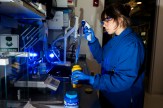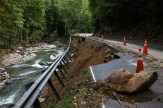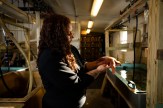Here’s how Northeastern’s Snell Library reinvented itself during the COVID-19 pandemic
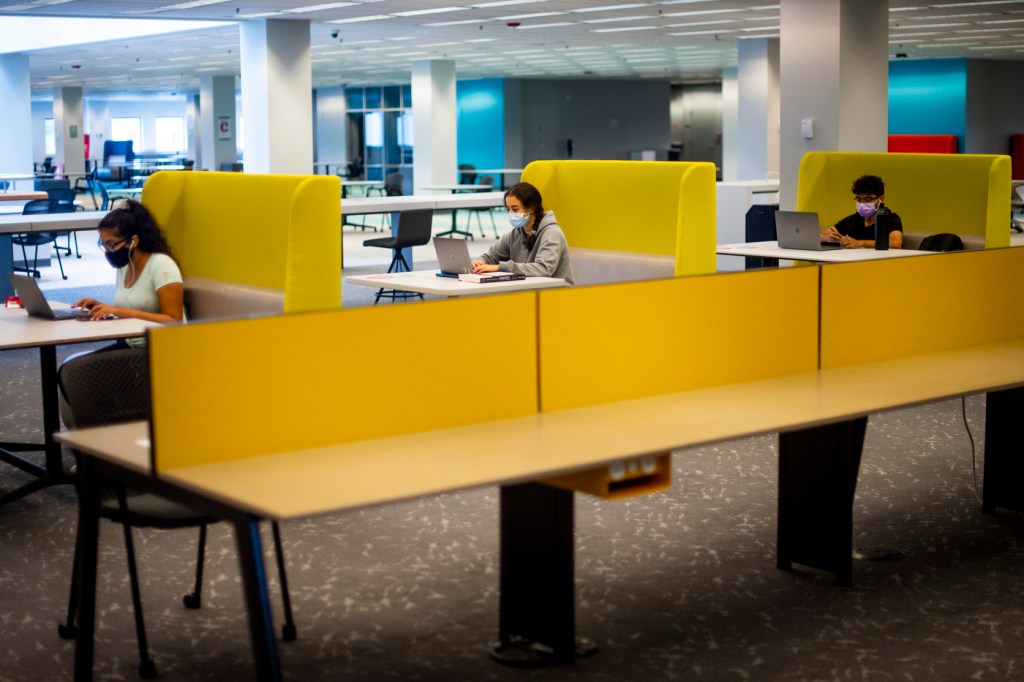
Students study and attend classes while distanced from each other. They can access more than one million books digitally. And in a recent development, they’ve been able to request hardbound books for delivery, in accordance with public health guidelines.
Like so many other mainstays of campus life, the Northeastern Library has adapted to the virtual realities of COVID-19.
“It really is a rapid evolution of the library,” says Dan Cohen, dean of libraries and vice provost for information collaboration at Northeastern. “Every single service that you would get in Snell, pre-COVID, is available to you as a student or faculty member.”
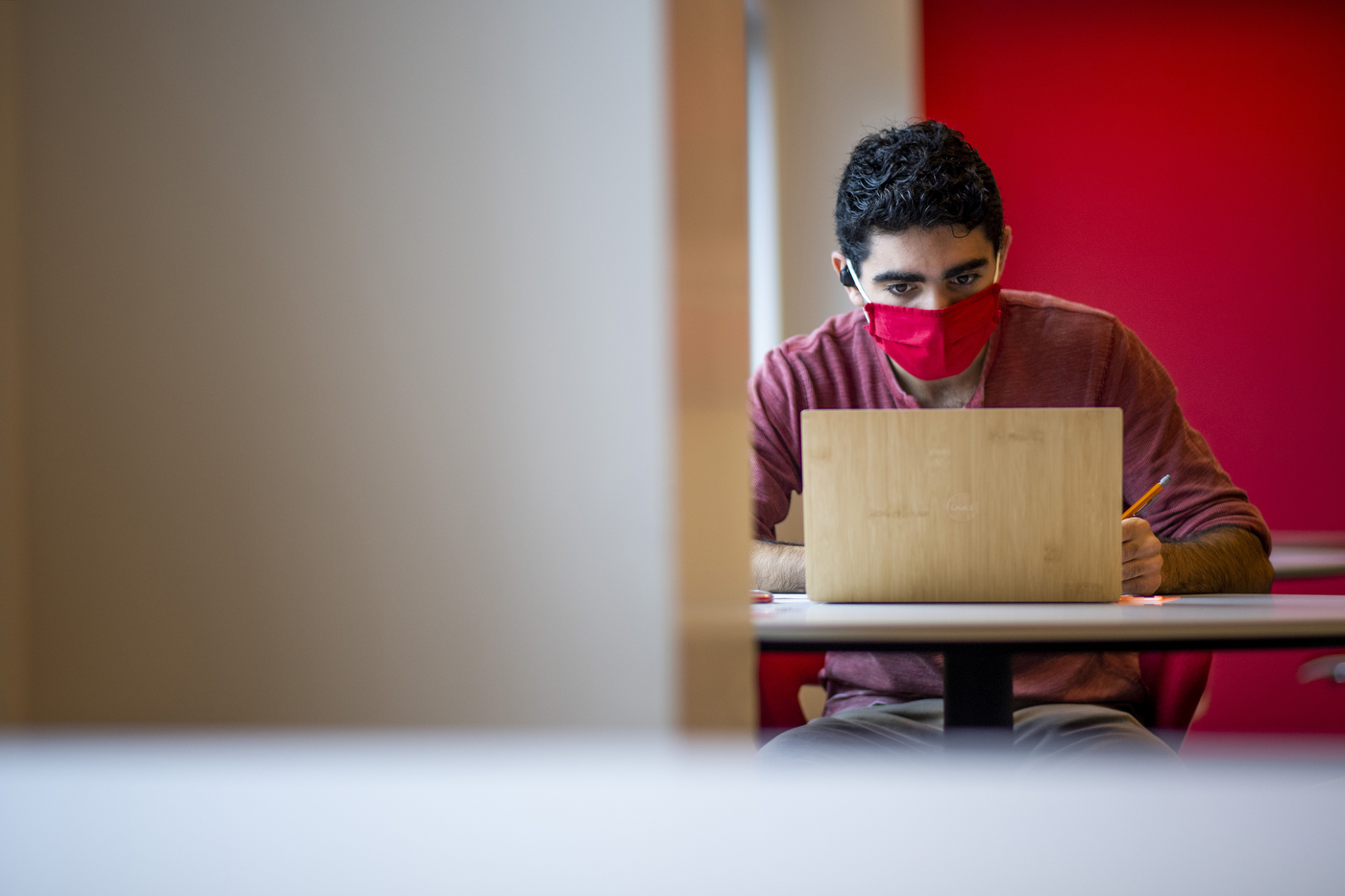
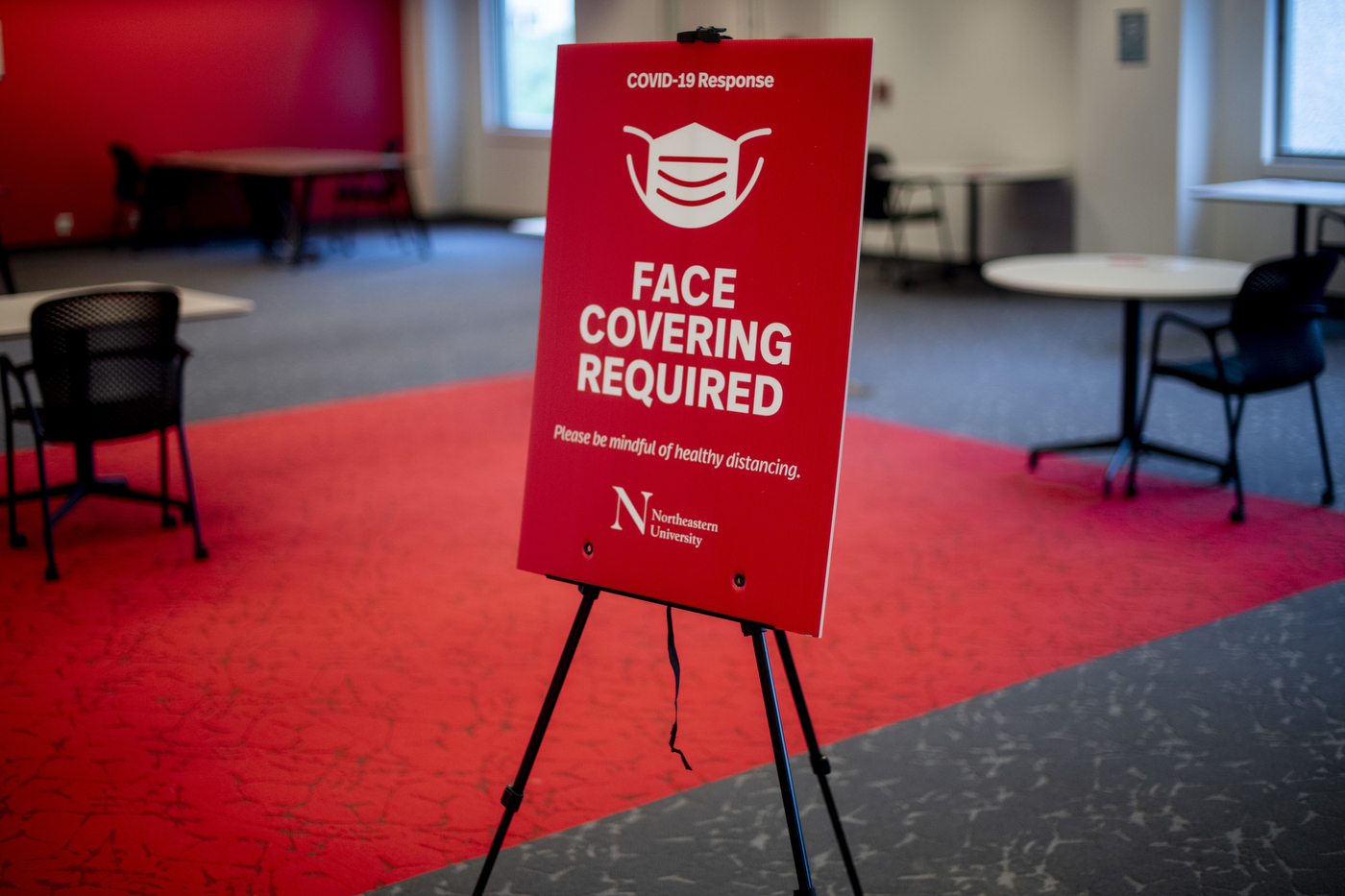
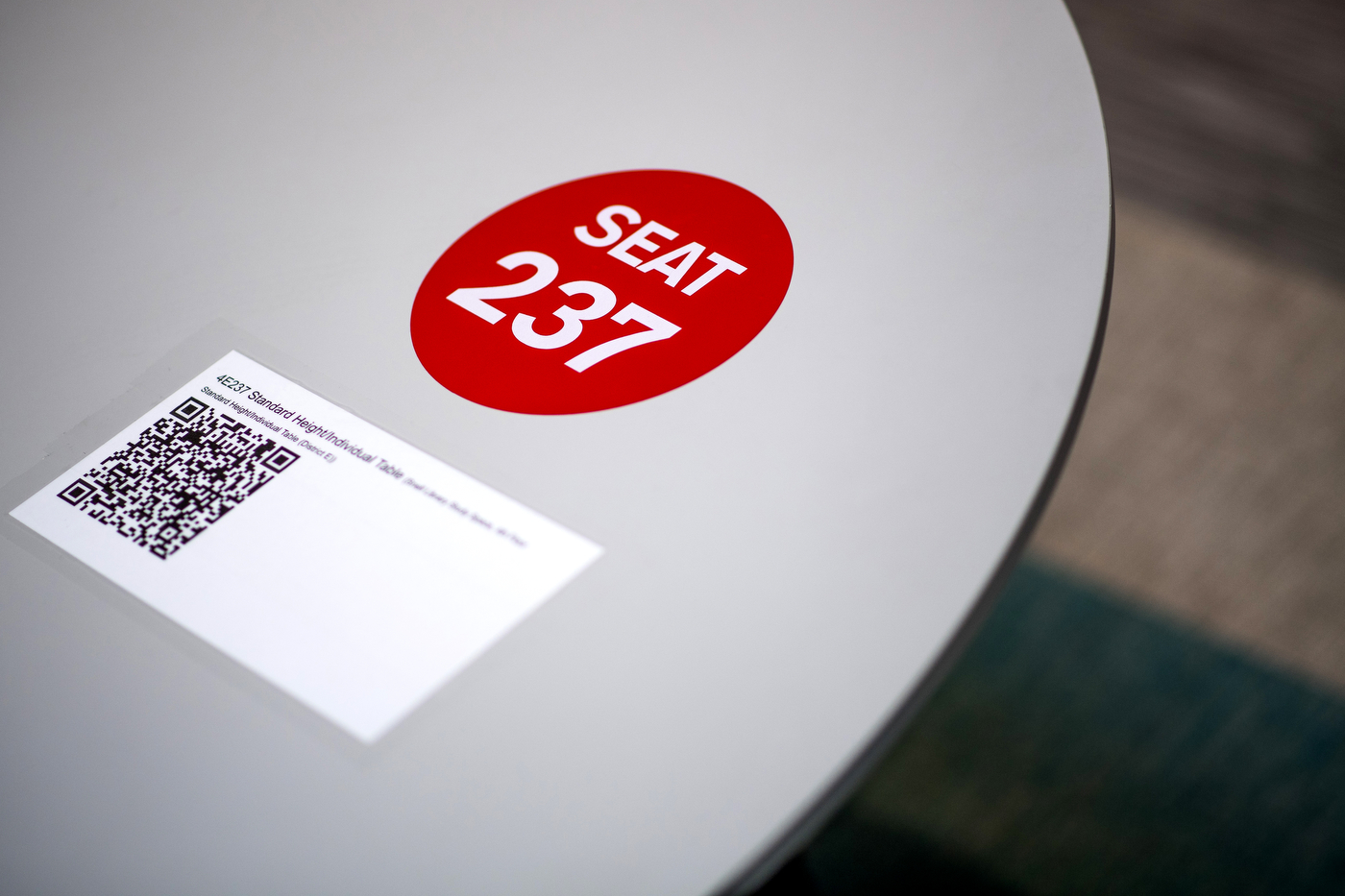
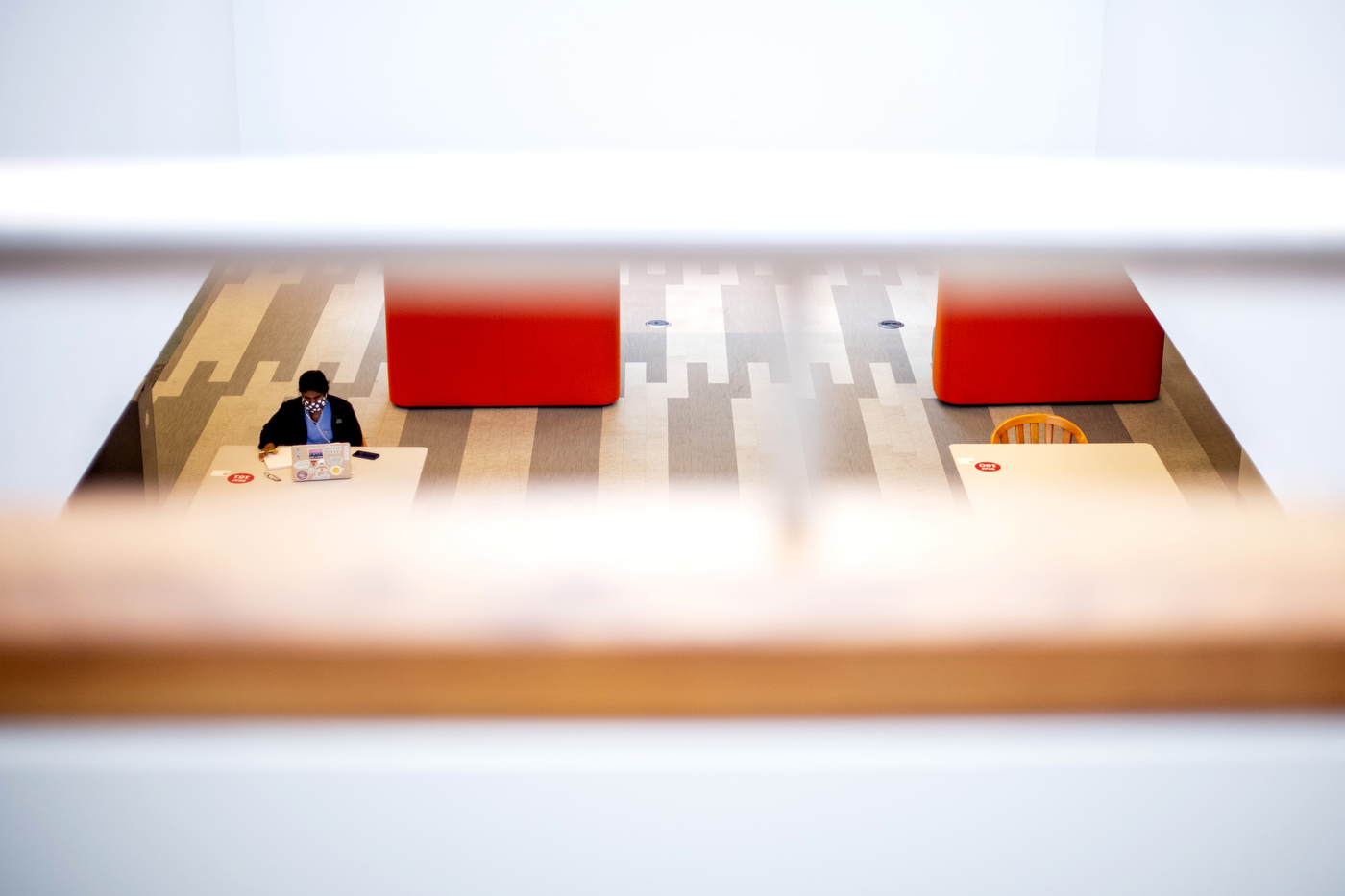
The library, which has been limited to 750 students at a time because of COVID-19 distancing rules—compared to its normal capacity of 2,000 before the pandemic—has become an especially welcome sanctuary this semester.
“I didn’t really go to Snell that much last year—only a handful of times—but now I’ve been going there more because there’s limited space everywhere else,” says Matt Blanco, a second-year student computer science and design. “Everything is really spread out. The space between students is pretty large, so I’ve been feeling safe.”
Over the course of the semester, the library has adjusted its rules to accommodate students’ needs. The latest adaptation allows students to enter the library and study at a table without making a reservation. Earlier in the semester, students had been asked to reserve a spot at a table or desk in advance.
“Because of a more limited seating capacity, we just wanted to be sure in the first few weeks of classes that every student could find a place to study,” Cohen says. “It is now clear that our traffic has naturally spread itself out and the reservation system simply isn’t needed any longer. We want to be as accessible as possible.”
The reconfigured third floor at Snell enables 300 distanced students to attend virtual classes.
“I have some online classes that are back-to-back with in-person classes, and if I tried to take them from my dorm, I probably wouldn’t make it to [the in-person] class,” says Julia Denlinger, a third-year student in health science, who has been making use of Snell’s new third floor. “Being able to go to the library and have a space where I can participate in the online classes is really nice, and I am able to get to class on time afterwards.”
A simplified welcome page on the library website offers access to digital offerings as well as opportunities to request help from library staff around the clock.
“We had been moving over the last several years to provide more and more services, and a lot of them were virtual, given that Northeastern has a global campus network,” Cohen says. “We have accelerated that natural process in response to the COVID-19 pandemic, and what we’ve found is that all of the services are not only continuing but have multiplied by an order of magnitude.”
Cohen says that the library has launched a delivery system for printed books that places each returned volume in a 72-hour quarantine, in accordance with the public health guidelines of the Institute of Museum and Library Services, a federal agency. Hardbound books have been removed from the library shelves during the pandemic.
In addition, the library has substantially deepened its collection of digital materials, with more than 1.4 million ebooks (a 32 percent increase since March), 150,000 electronic journals, and 180,000 streaming videos. Some 267,000 hardbound books that are currently unavailable at Snell may now be accessed online because of the library’s association with HathiTrust, which provides temporary digitized access to printed materials that are owned by Northeastern.
Already this semester, students and faculty have had more than 1,000 online consultations with librarians who have provided help on research products and other academic work. The library also offers a collection of 46 online workshops and 20-minute webinars, which have been viewed by more than 1,000 students.
“If a student wants to learn a new skill—such as how to create a podcast, or how to start a search through a complicated database—we have a variety of tutorials available, and we’re seeing a real surge in demand in them,” Cohen says. “Everyone should know that the library is here to help the Northeastern community.”
For media inquiries, please contact media@northeastern.edu.



